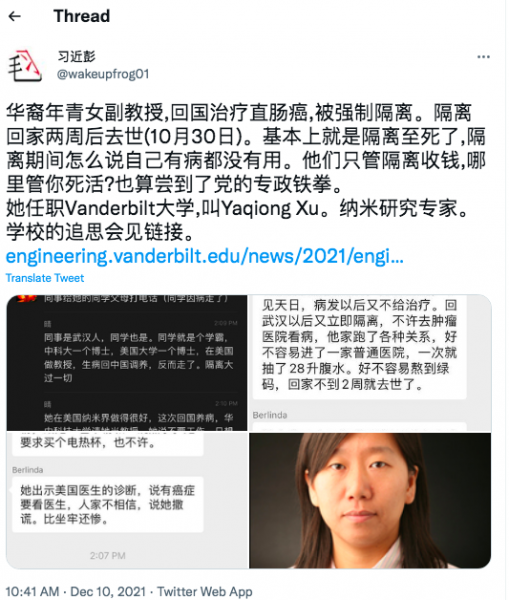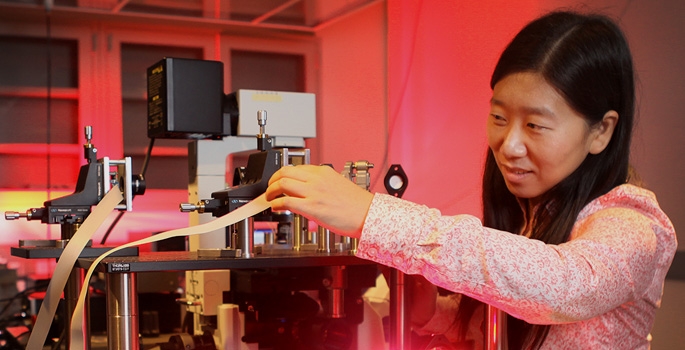China’s zero-COVID policies have placed significant strain on everyday life and economic activity, and their draconian implementation — such as quarantines and lockdowns without adequate accommodations for those affected — has sometimes led to tragedy.
Yaqiong Xu, an associate professor of electrical engineering and physics at Vanderbilt University, died at the age of 40 after being unable to seek cancer treatment due to her prolonged quarantine in China. Due to the harsh anti-epidemic measures, Xu was forced to quarantine for 28 days upon her arrival in her homeland.
The Chinese-American had decided to return to China in hopes of trying traditional Chinese medicine after being diagnosed with terminal rectal cancer in the United States.

After first arriving in Guangdong, southern China, Xu was placed into a mandatory 14-day quarantine after getting off the plane. When she traveled to her hometown of Wuhan, however, authorities told her she had to go into quarantine a second time.
During the second quarantine, she repeatedly communicated with staff at the quarantine site, telling them she had returned to China to seek cancer treatment. Unfortunately, she was dismissed and told there was nothing anyone could do to help her.
Terminal cancer ignored
Success
You are now signed up for our newsletter
Success
Check your email to complete sign up
During the quarantine period, Xu said it was useless to mention how sick she was. The staff did not care if she was at an increased health risk. People commented on social media that Xu’s plight was an example of the communist regime’s “iron fist” in action — where no one is willing to help another person in obvious need.
A person familiar with Xu’s situation revealed that when Xu was treated in the United States, her doctor said she should have at least another few months to live. But when she returned to China, she was “pulled into isolation in Dongguan as soon as she got off the plane,” the source, whose name is withheld for privacy.
“The quarantine was in a rundown hostel where windows were boarded up with no sunlight. One can only have quarantine meals and is not allowed to order take-out. When she ordered rice noodles, she was given a packet of dry noodles and a bowl of hot water. She asked for an electric water heater [to boil the water], but this was denied.”
The source added that Xu presented a diagnosis from the American doctor proving she had late-stage cancer and needed to seek immediate medical attention. The quarantine staff did not believe her and accused her of lying.
A few days later, after her parents’ efforts in contacting Chinese authorities, Xu was admitted to a general hospital for treatment, where “28 liters of ascites were pumped into her at once.” When she was finally cleared for discharge, she died two weeks later on Oct. 30.
After Xu’s death, Vanderbilt University held a memorial service for her on Dec. 3 and called her a gifted scholar and devoted mentor.
According to public records, Yaqiong Xu graduated from Wuhan University as an undergrad and later pursued her graduate degree at the Institute of Chinese Academy of Sciences and Physics. She was also a doctoral student at Rice University in the U.S.
So far, Chinese state-media has not reported on Xu’s death in China and no official response has been made.














